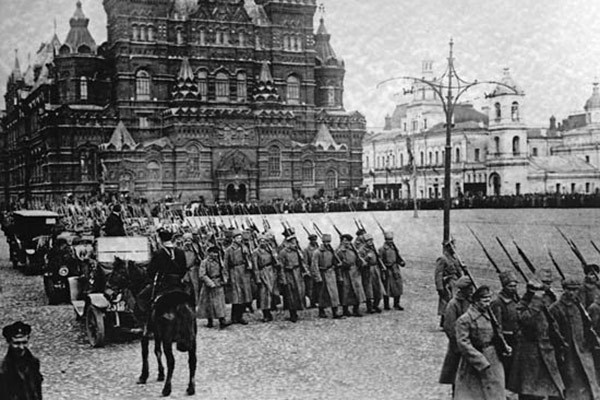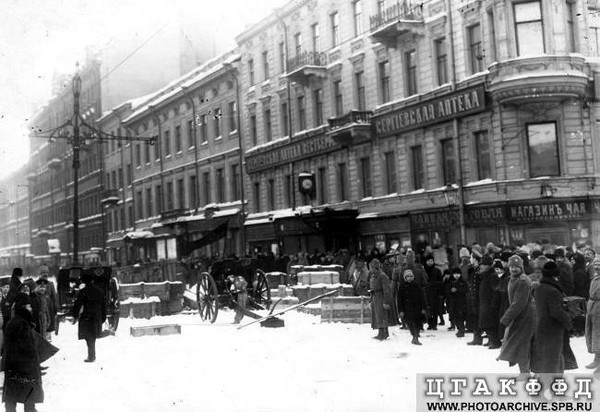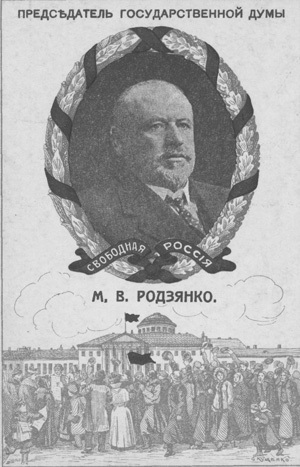
The Russian Revolution of 1917 was a defining event of the twentieth century, shaping much of what has followed. In nine short days, Europe’s last old regime was overthrown, and a chain of events was set in motion that led to the disintegration of the Russian empire and the rise of the Soviet regime that would come to dominate the world stage. Yet even today, as we approach the centennial of the Russian Revolution—and twenty five years after the opening of the previously inaccessible Russian archives—historians still lack comprehensive understanding of the multitude of transformations that impacted the political, social, economic, and cultural order within the borders of the former Russian empire and beyond. Though in recent years historians have come to see the revolution as a long process and as the laboratory for social, political and cultural transformation, much remains to be studied or reevaluated. The time is right to bring the new topics and approaches together to provide a fresh overview of 1917 and its global impact.
The conference (and subsequent volume) will bring together world’s leading revolutionary scholars from the United States, UK, Germany, Israel, Scandinavia, and Russia whose contributions will integrate the latest research based on much freer access to the previously closed Russian archives and challenge many of the conventional interpretations. The papers will reflect the impact on the study of the Russian Revolution made by the collapse of the Soviet Union and the rise of new authoritarian regime of President Putin. The conference itself will exemplify and promote the new opportunities for collaboration between Western and Russian historians as we approach the centennial anniversary of Russia’s failed democratic revolution.

Russia’s Failed Democratic Revolution,
February-October, 1917: A Centennial Reappraisal
A Symposium on March 10-12, 2016
University of Notre Dame Rome Global Gateway
Opening remarks by Semion Lyandres
Historiographies of 1917 (part I)
Chair: Michael Hickey
- Lutz Häfner, “Aurora or the ‘Last Days of Mankind?’: The German Historiography on the Russian February Revolution after 1990 and its Future Perspectives"
- Vera Kaplan, “Israeli Historiography of the 1917 Revolution(s)"
- Hannu Immonen, “From February Revolution to Civil War: Finnish Historians and the Year 1917"
Historiographies of 1917 (part II)
Chair: Daniel Orlovsky
- Rex A. Wade, “The Revolution at One Hundred: Issues and Trends in the English Language Historiography of the Russian Revolution of 1917” (for discussion only)
- Semion Lyandres & Andrei Nikolaev, “Recent Russian Historiography of the February 1917 Revolution”
- Taras Karaulshchikov, “Mikhail Aleksandrovich Polievktov and his Concept of the fate of Russian Autocracy: Writing about the Reign of Nicolas I during the Great War and the 1917 Revolution”
Revolutionary Petrograd
Chair: Adele Lindenmeyer
- Toshi Hasegawa, “Crime, Police, and Samosudy in Petrograd in the Russian Revolution: the Subalterns, and Sociological Theories of Anomie and Crowd Psychology”
Revolutionary Personalities
Chair: Tsuyoshi Hasegawa
- Adele Lindenmeyr, “‘The First Woman of Russia’: Countess Sofia Panina and Women’s Political Participation in the Revolutions of 1917”
- Sarah Badcock, “Personal and Political Networks in 1917: Vladimir Zenzinov and the Socialist Revolutionary Party”
- Ekaterina Gavroeva, “M.V. Rodzianko and Prince G.E. L'vov, March - July 1917”
Workings of Revolutionary Power
Chair: Sarah Badcock
- Michael Hickey, “Lost in the Vermicelli? The Provisional Government and Local Administration in Smolensk Province”
- Alistair Dickins, “Rethinking the Power of Soviets: Krasnoiarsk, March - October 1917”
- Ian Thatcher, “Russian Political Parties and the First Provisional Government”
- Daniel Orlovsky, “The Question of Power in Late Summer and Autumn 1917”
Concluding remarks by Semion Lyandres
This conference is supported with additional contributions from the Institute for Scholarship in the Liberal Arts, College of Arts and Letters, Henkels Lecture Series and The Helen Kellogg Institute for International Studies at Notre Dame.
Photos provided by conference organizer, Semion Lyandres, Professor of History.
Additional Links
Peripheral Histories?: Conference Report, by Alistair Dickins
